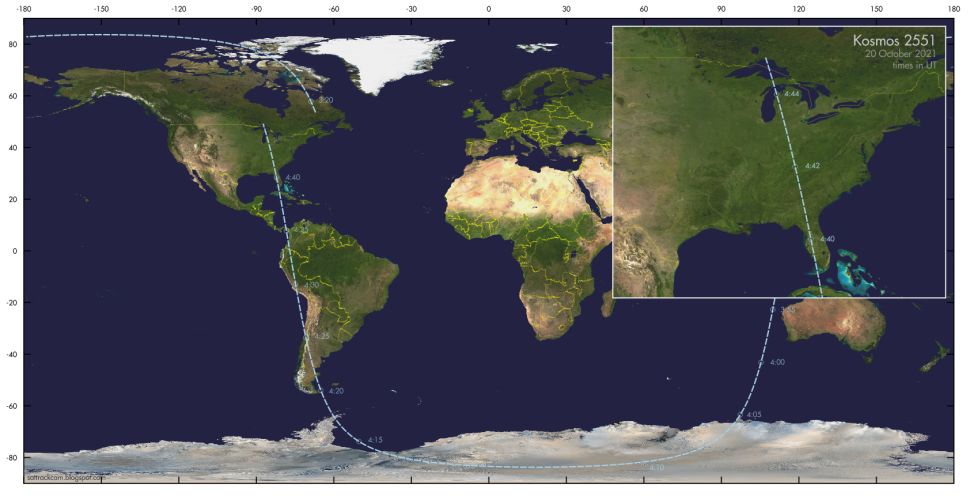A failed Russian spy satellite entered the earth’s atmosphere on the morning of 20th October, as reported by Space.com. It was some spectacle, a massive fireball observed by many observers from the American Midwest.
Reports above 80 have been received by the AMS (American Meteor Society) of the event. The reports have been coming in from as south as Tennessee, right up to Michigan in the north. The pictures and videos received show a fiery ball lighting up the sky. A video submitted by the sky gazer Chris Johnson shows the meteor leaving a blazing trail behind in the skies of Fort Gratiot Township, Michigan.
The event took place at around 12:43 a.m. EDT (0443), which leaves little to no doubt behind the fireball’s genesis and entry into our atmosphere.
12:43 a.m. EDT is “the exact predicted time Kosmos-2551 passed over the region, and within the re-entry time uncertainty window given by Space Force. So I conclude that the ID with Kosmos-2551 is solid,” astronomer and satellite tracker Jonathan McDowell based at the Harvard-Smithsonian Center for Astrophysics posted on his Twitter.

“Kosmos-2551 is a Russian reconnaissance satellite that launched on Sept. 9 but failed shortly after that. The spacecraft had not adjusted its orbit once since liftoff”, McDowell tweeted on Monday (Oct. 18). As a result, the ill-fated satellite did not spend much time in orbit, and one day before its reentry burst into flames.
The reentry and the fact that the satellite turned into a fireball does not pose any threat to anyone on earth as “The satellite is thought to be only about 500 kg [1,100 pounds] and no debris is expected to reach the ground,” McDowell said in another Monday tweet.
Space junk fireballs, while often spectacular, aren’t particularly rare. Last year, for example, the re-entering of the third stage of a Soyuz rocket caused a brilliant sky show over parts of Australia during a Russian military satellite launch.
Space junk is getting a matter of concern for experts around the world. As with the boom in satellite launches, space junk reentry into our atmosphere is no longer considered rare. However, work is needed to be done to ensure that space junk remains under check.


